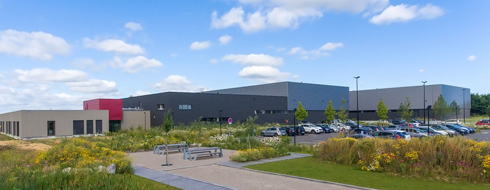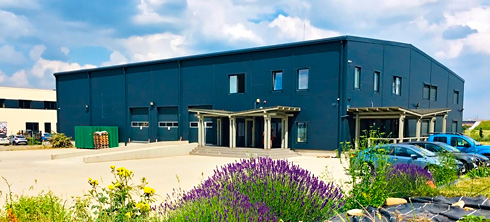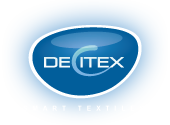Our history

Guillaume Leymonerie, founder of Aupal Group (formely known as 3E Concept) has brought the two companies Decitex and H2O at Home, onto a new site based at Hallennes-Lez-Haubourdin (10 min from Lille).
This passive energy building represents a small concentration of innovation and is extremely environmentally friendly.
HEATING NEEDS ARE 3 TIMES LESS THAN REQUIRED BY CURRENT HEATING REGULATIONS
- The heating requirements of the building are about 15 kWh/m². year
- Those of a standard new building are about 50 kWh/m².year
- Those of an old building are about 200 kWh/m².year
AIR-TIGHTNESS IS 4 TIMES MORE EFFICIENT THAN CURRENT THERMAL REGULATIONS
- It’s as if there were a hole equivalent to the size of a driving licence that lets the air in
- A standard new building would have a hole equivalent to the size of a sheet of A4.
- An old building would have a hole equivalent to the size of a sheet of A3
TOTAL ENERGY CONSUMPTION < 120 KWH/M2.YEAR
- Total energy consumption of a standard new building : about 240 kWh/m².year
- Total energy consumption of an old building : about 350 kWh/m².year
New building in Romania

The Decitex Romania building has taken up the challenge on the production side:
- Respect for the environment in its choice of cladding and insulated roof panels with rockwool.
- Underfloor heating and cooling, with a reflective screen under the screed, that allows for a smaller low temperature consumption in winter. Auxiliary air conditioning in summer using textile pulsing pipework as well as suppressing draughts bringinig in particules.
- Induction lighting for the production area, providing close to daylight quality 24 hours a day. Number of lux, UGR and RA specific for each stage of the operation.
- Isolation of each space according to its function (loading bays-stockroom-production-administration-work areas) and automatic and independent control heating/air con/lighting of each zone so as to be in complete control of energy consumption.
- Work areas specially conceived for disabled personnel (Downs Syndrome) or reduced mobility.
- Vegetable garden and organic orchard for relaxation and seasonal consumption by the team.
